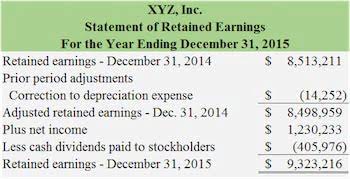Another critical component is the chart of accounts, which categorizes all financial transactions and ensures accurate record-keeping. This structured approach aids in the organization of financial data and simplifies reporting processes. By maintaining a clear and accounting services for nonprofit organizations detailed chart of accounts, nonprofits can better manage their resources and enhance transparency for donors and regulatory bodies. Additionally, nonprofit accounting helps organizations comply with legal and regulatory requirements. Nonprofits are often subject to specific financial reporting standards and must adhere to guidelines set by governing bodies. Proper accounting practices not only facilitate compliance but also enhance the organization’s credibility and reputation in the community.
Let us worry about your books.So you can focus on your mission.
For-profit entities are individuals, corporations, or partnerships that conduct business for profit. In this case, https://www.bookstime.com/ shareholders, investors, tax authorities, management, and suppliers are interested in the entity’s financial position, and that’s what for-profit accounting focuses on. You have to know the area to plan a route, and the same can be said about your nonprofit’s budget. Accurate and timely bookkeeping practices will make the job of those tasked with budgeting much easier to tackle. Bookkeeping for nonprofits is recording and analyzing financial transactions to ensure compliance with state and federal accounting rules.
Best for Volunteer-Run Nonprofits
With limited financial resources, organizations must prioritize spending while effectively managing operational costs. This requires a strategic approach to financial planning that balances short-term needs with long-term sustainability, making it essential for nonprofit leaders to develop strong financial management skills. Another important aspect of nonprofit accounting is the requirement for compliance with various regulations and standards. Nonprofits must adhere to the Generally Accepted Accounting Principles (GAAP) in the U.S. or other applicable frameworks, which dictate how financial information should CARES Act be reported. This compliance not only builds trust with stakeholders but also helps organizations avoid legal issues and maintain their tax-exempt status. The basis of accounting is fundamental in shaping the financial reporting of any organization, including nonprofits.
The Leaders in Nonprofit Accounting
The best nonprofit accounting software should include all the core accounting features and functionality all businesses need, such as the ability to send invoices and track spending. It should also offer nonprofit-specific accounting functionality, such as the ability to receive donations, manage restricted funds and file Form 990. Forbes Advisor selected these solutions based on features, pricing, reputation and more.
Regular audits and the use of comprehensive nonprofit accounting software can aid in maintaining compliance. It is imperative for nonprofit organizations to stay current with evolving standards and practices by engaging in continuous learning and leveraging technology. Both for-profit and nonprofit organizations usually comply with generally accepted accounting principles (GAAP).
- For the most part, nonprofits can apply to the IRS to become exempt from federal taxes under Section 501.
- For instance, contributions may be recognized when received, while grants might require adherence to specific terms and conditions before revenue can be recorded.
- By fostering a culture of accountability and accuracy, nonprofits can navigate the complexities of their financial landscape more effectively.
- Understanding nonprofit accounting is crucial for the effective management of an organizationâ??
Nonprofit Accounting
Websites like the National Council of Nonprofits and the Nonprofit Finance Fund offer valuable insights, articles, and webinars that help organizations stay informed about best practices. These resources can empower nonprofit professionals to enhance their financial acumen and improve their accounting practices. Additionally, nonprofits must adhere to specific operational guidelines to retain their tax-exempt status. This includes ensuring that the majority of their activities align with their stated charitable purpose and that they do not engage in excessive lobbying or political campaigning. Understanding these requirements is essential for nonprofit leaders to navigate the complexities of accounting and maintain compliance. One of the primary regulatory bodies for nonprofits in the United States is the Internal Revenue Service (IRS).
- Effective nonprofit accounting is crucial for ensuring transparency and accountability within organizations.
- Excellent communication skills are also vital, as accountants often collaborate with various departments to ensure financial accuracy and compliance.
- A knowledge base is an organized repository that stores information and resources crucial for a business or organization.
- Another critical component is the chart of accounts, which categorizes all financial transactions and ensures accurate record-keeping.
- Nonprofit accounting refers to the specialized financial management practices designed to meet the unique needs of nonprofit organizations.
- The nonprofit chart of accounts (COA) serves as a foundational framework for organizing financial information.
Reliable financial data translates to meaningful financial reports and analysis, which will empower you to fulfill your mission and achieve your organization’s strategic goals by making impactful decisions. Our tailored plans cover everything from day-to-day data entry to the meticulous balancing of your books. We go beyond just keeping your numbers in order; we provide strategic financial reporting that gives you actionable insights, enabling smarter, mission-aligned decisions.
Best for Expense Tracking and Management
Nonprofits must file Form 990 annually, which provides a comprehensive overview of their financial activities, governance, and compliance with tax-exempt status requirements. Failure to file this form can result in penalties or even the loss of tax-exempt status, highlighting the importance of timely and accurate reporting. Regularly reviewing and updating the COA is crucial for adapting to changes in the organizationâ??




